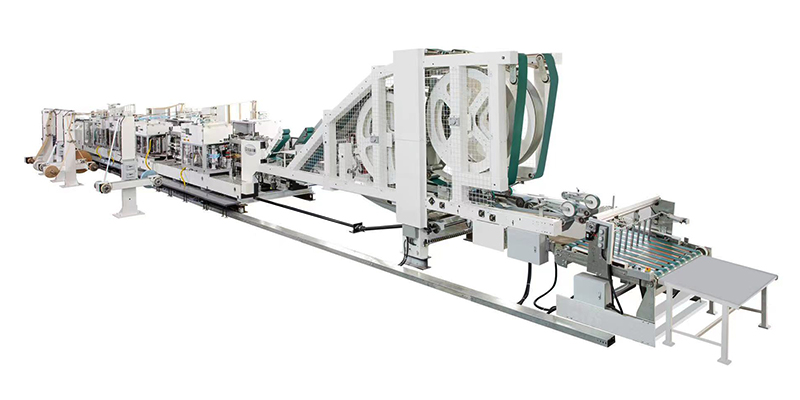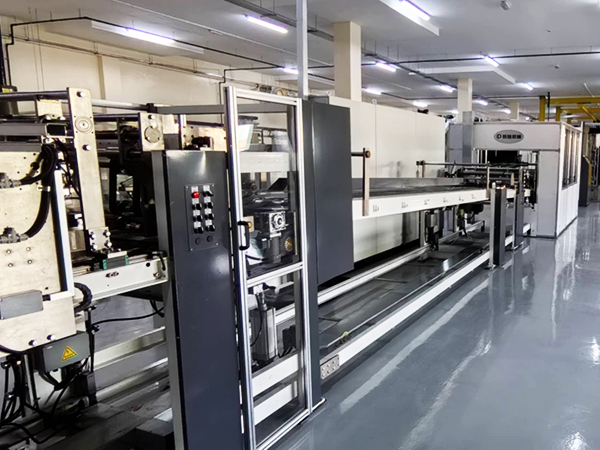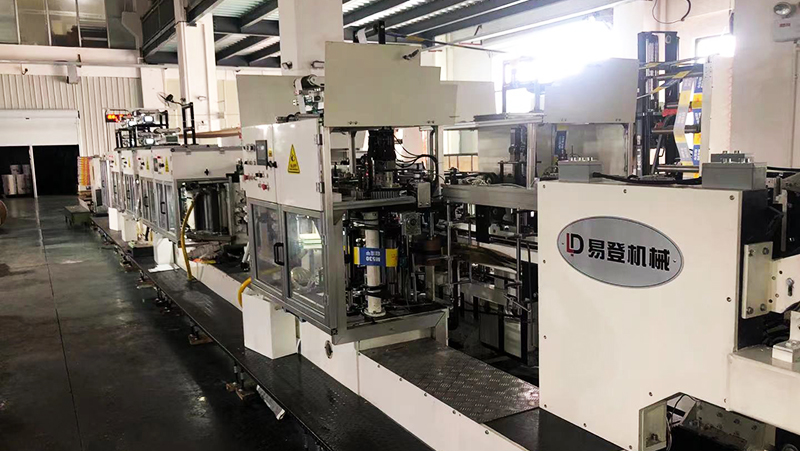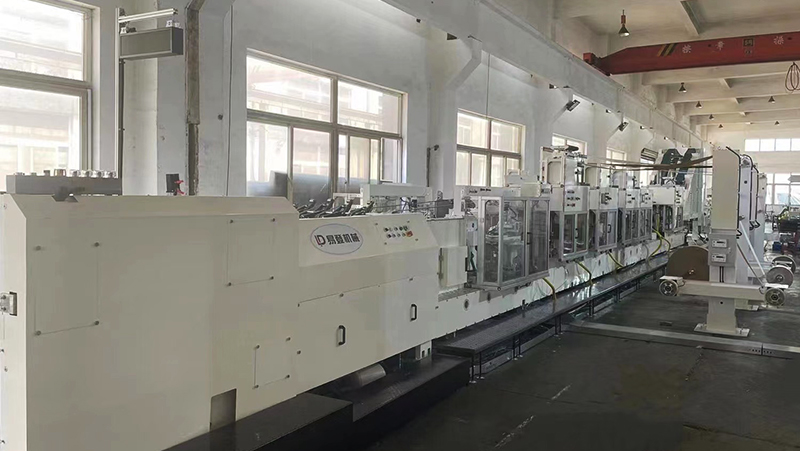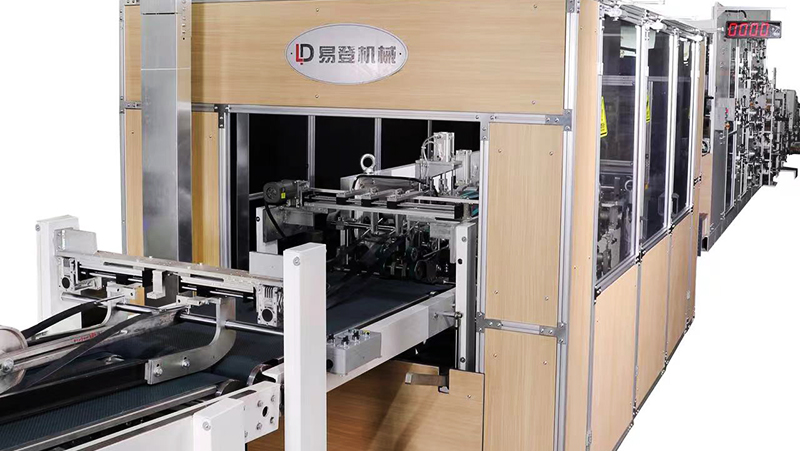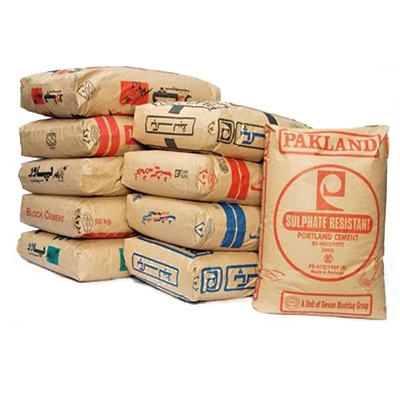Cement is the literal foundation of modern construction. From towering skyscrapers to essential infrastructure, its demand is constant and vast. Ensuring this crucial material reaches builders reliably, efficiently, and in perfect condition hinges significantly on one critical piece of equipment: the Cement Bag Machine. These sophisticated systems are far more than simple bag fillers; they represent the pinnacle of industrial automation, precision, and durability tailored for the demanding environment of cement packaging.
Understanding the Cement Bag Machine
A Cement Bag Machine, often referred to as a cement bagging plant or packing machine, is an integrated system designed to automate the process of filling pre-formed or form-fill-seal (FFS) bags with precise weights of cement powder. This process involves several coordinated stages:
- Material Feeding: Cement from a silo is fed into the machine, typically via screw conveyors or pneumatic systems, ensuring a consistent flow.
- Weighing: High-precision weighing systems, most commonly gross/net weigh scales or advanced weigh cells integrated into the filling spout, measure the exact amount of cement for each bag. Accuracy is paramount, meeting strict commercial weight standards.
- Bag Handling: Empty bags are automatically fed from a magazine (for pre-made bags) or formed from roll stock (for FFS bags), positioned accurately under the filling spout.
- Filling: The cement is discharged into the bag. Advanced systems use techniques like air-fluidization or vibrating spouts to ensure complete filling without packing or bridging, maximizing bag capacity and consistency. Dust extraction systems are crucial at this stage to maintain a clean environment and operator safety.
- Closing/Sealing: Once filled, the bag is securely closed. Methods vary:
- Sewing: Robust industrial sewing heads stitch the bag top.
- Heat Sealing: For poly-lined or all-plastic FFS bags.
- Valve Insertion & Sealing: For valve bags, where the spout seals directly onto the bag's valve.
- Conveying & Palletizing: Closed bags are automatically conveyed away, often through check weighers for final weight verification, and then stacked onto pallets by robotic palletizers or automated layer formers.
Types of Cement Bag Machines
- Open Mouth Bagging Machines: Designed for traditional open-top cement bags (e.g., 50kg bags common globally). Bags are held open manually or by automated bag placers/sealers during filling, then stitched or heat-sealed.
- Valve Bag Packing Machines: Specifically for valve-type cement bags. Filling occurs through the bag's internal valve, minimizing dust emission. The machine clamps and seals the valve during filling, then releases the filled bag. Highly efficient and clean.
- FFS (Form-Fill-Seal) Machines: These start with roll stock (paper/poly laminates or woven PP), form the bag, fill it, and seal it in one continuous, automated operation. Offer excellent hygiene, reduced bag storage needs, and high speeds.
- Rotary vs. Linear: Machines can have a rotary table with multiple filling stations for very high output or a linear design for flexibility and ease of integration.
Key Features Defining Modern Cement Bag Machines
- High Precision Weighing: Achieving consistent weights within tight tolerances (e.g., ± 0.2% or better) is non-negotiable for commercial compliance and minimizing product giveaway.
- Rugged Durability: Cement is abrasive. Machines must be constructed from hardened materials (wear plates, specialized liners in hoppers and spouts) to withstand constant wear and tear, ensuring longevity and minimal downtime.
- Superior Dust Control: Integrated dust collection hoods, sleeves, and extraction systems are essential to protect operators, prevent product loss, and maintain a safe, environmentally compliant workspace. This is a critical safety and regulatory aspect.
- High Speed Operation: Modern machines are engineered for rapid cycling, capable of packing hundreds, even thousands, of bags per hour depending on the model and bag size (e.g., 50kg, 25kg, Big Bags).
- Automation & Integration: PLC controls with intuitive HMIs (Human-Machine Interfaces) allow for easy operation, recipe management, and diagnostics. Integration with upstream silos and downstream conveyors, check weighers, and palletizers creates a seamless packaging line.
- Flexibility: The ability to handle different bag types (paper, woven PP, laminated), sizes, and weights with quick changeovers is vital for producers with diverse product lines or customer requirements.
- Reliability & Low Maintenance: Designed for continuous operation in harsh conditions, minimizing unplanned stops through robust engineering and accessible maintenance points.
The Critical Role in the Cement Industry
Implementing a high-performance Cement Bag Machine delivers substantial benefits:
- Massive Efficiency Gains: Automation drastically reduces manual labor, speeds up the packaging process, and increases overall plant throughput.
- Uncompromised Product Quality: Precise weighing and controlled filling ensure every bag meets the specified weight and contains undamaged cement, protecting brand reputation.
- Enhanced Operational Safety: Automated handling reduces heavy lifting and repetitive strain injuries for workers. Effective dust suppression protects respiratory health.
- Significant Cost Reduction: Minimized cement spillage, reduced giveaway from overfilling, lower labor costs, and decreased bag damage all contribute to a healthier bottom line.
- Supply Chain Reliability: Consistent, high-speed bagging ensures products are ready for timely dispatch, meeting market demands efficiently.
Choosing the Right Cement Bag Machine: Key Considerations
Selecting the optimal machine requires careful evaluation:
- Required Output Capacity (bags/hour): Match the machine's speed to your production needs.
- Bag Types & Sizes: Specify exactly which bag styles (valve, open mouth, FFS) and weights you need to pack.
- Available Space & Layout: Consider the machine's footprint and integration requirements with existing infrastructure.
- Level of Automation: Determine the need for automated bag feeding, palletizing, and conveying.
- Dust Control Regulations: Ensure the machine meets or exceeds local environmental and safety standards for dust emission.
- Total Cost of Ownership (TCO): Look beyond the initial price. Consider energy efficiency, maintenance costs, spare parts availability, expected lifespan, and supplier support.
Yideng Machinery: Your Partner in Cement Packaging Excellence
For over two decades, Yideng Machinery has been at the forefront of designing and manufacturing robust, high-performance packaging solutions for demanding industries like cement. We understand the unique challenges cement producers face – the abrasive nature of the product, the critical need for accuracy and speed, and the imperative for dust control and reliability.
Our Cement Bag Machines are engineered with these core principles:
- Proven Durability: Utilizing premium materials and hardened components specifically chosen to combat cement abrasion, maximizing machine lifespan.
- Precision Engineered: Incorporating state-of-the-art weighing technology and controlled filling mechanisms to guarantee weight accuracy batch after batch.
- Optimized for Cleanliness: Featuring highly effective, integrated dust collection systems designed to meet stringent environmental and safety requirements.
- Scalable Automation: Offering solutions ranging from semi-automatic stations to fully integrated, high-speed lines with automated bag feeding, sealing, conveying, and palletizing.
- Reliability Built-In: Focused on robust design and ease of maintenance to ensure maximum uptime and productivity for your operation.
- Customized Solutions: We work closely with clients to tailor machine specifications and layouts to their exact plant requirements, bag types, and production goals.
Investing in Your Future
A modern, efficient Cement Bag Machine is not merely an expense; it's a strategic investment in the productivity, quality, safety, and profitability of your cement production operation. Outdated or inefficient packing systems become bottlenecks, increase costs, and compromise product integrity and worker safety.
Ready to Optimize Your Cement Packaging?
Upgrading your cement bagging line with advanced technology delivers tangible, rapid returns. If you're seeking to enhance speed, accuracy, reliability, and environmental compliance in your cement packaging process, exploring the capabilities of a modern Cement Bag Machine is the essential next step.
Contact Yideng Machinery today. Our team of packaging specialists is ready to discuss your specific challenges and demonstrate how our industry-leading Cement Bag Machines can revolutionize your operation, providing a reliable, high-performance solution built to last in the toughest environments. Let us help you build a stronger foundation for your packaging success.


